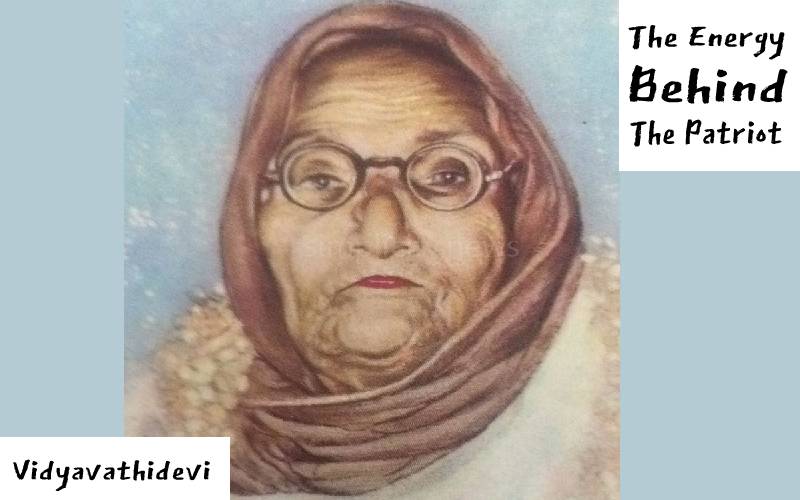
Vidyavathidevi (1887 - 1975) was the mother of the revolutionary Bhagat Singh and was the wife of the brave patriot Sardar Kishan Singh. The entire family had dedicated itself in the pursuit of gaining freedom for the country. It was her firm will and patriotic fervour that made her the centre of several good things connected with patriotism. A grateful state had conferred upon her the title ‘Punjab Matha.’ She is forever a symbol of courage and patriotism. Vidyavathidevi had five sons, Bhagat Singh, Kulbir Singh, Kultar Singh, Ranbir Singh, Rajendra Singh and three daughters, Amar Kaur, Sumithra, Shakuntala. One way or the other, all of them were social workers.
The brave mother had been born in Moranvali (Hoshiarpur, Punjab) and her father Varyam Singh was well known in the village. She was coaxed to get married at an early age to Sardar Kishan Singh, who happened to be the son of a revolutionary Sardar Arjun Singh. The family of her husband was literate, and they insisted that Vidyavathidevi should at least be moderately educated. She did not like to study, and somehow she managed to learn a bit of Hindi and Punjabi.
Thereafter, she went to stay at Layalpur for some time before moving to Lahore. Sardar Kishan Singh had no time to think of his wife for he was interested in setting the country free. Despite being young, she took part in the activities connected with freedom. She would gladly serve the revolutionaries who were with her husband.
Sardar Kishan Singh always used to have some case or the other in one of the law courts of the day. He was repeatedly convicted and sent to prison. Her brothers-in-law, Ajit Singh and Swaran Singh, were also in constant police custody. It was a life without security and peace. The year 1907 was a landmark year for she gave birth to Bhagat Singh, who eventually did a spadework through and through towards national freedom.
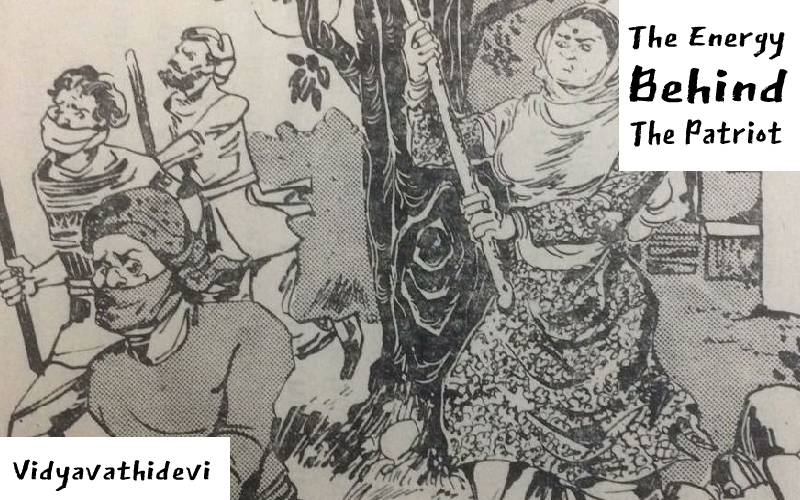
The family struggled and Vidyavathidevi had to spend a lot of time with her parents. Kishan Singh began to work for an insurance company and started making money. The family grew rich, and purchased some jewels. However, a servant had stolen the ornaments, and the brave mother never again wore any jewels all her life.
Vidyavathidevi had nurtured Bhagat Singh into becoming a patriot. He followed his father's footsteps. Bhagat Singh was later arrested in connection with the bomb episode of 1927. By some lucky chance, he was imprisoned only for six months. But after a few months, he disappeared and finally ended up in the Lahore jail. Vidyavathidevi had to tramp all the way to Lahore to visit her son in jail. The family became very poor due to all these issues.
It was the year 1931, Bhagat Singh was awaiting his death sentence and his house was attacked by some dacoits, however his mother Vidyavathidevi chased them away. It was at this time that a visiting mendicant gave her some holy ash and told her that if she placed it on her son's forehead, he would escape death. The Brave Bhagat Singh refused to accept it for he was ready to sacrifice his life for the country.
On another occasion, she tried to place the coat of an eldest born near Bhagat Singh, for it was believed that he would remain free from troubles. Again, Bhagat Singh refused and told his mother to preserve it, for he believed that he would be born again and come to wear the coat. Finally, Bhagat Singh was hanged on 23/3/1931. In between all these, Vidyavathidevi, also, suffered from snake-bite for four times. In spite of all these ordeals, she managed to survive.
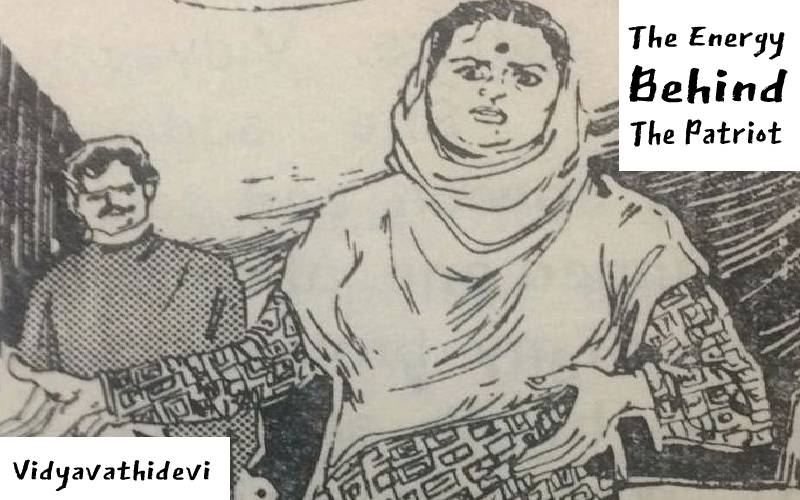
Vidyavathidevi was denied an opportunity to meet her other sons in jail on another occasion, and she created a turmoil that she was finally allowed to see them immediately. The wealth of the family had vanished with Bhagat, and they were in abject poverty for some time. Vidyavathidevi had to suffer because her husband had become ill, brothers-in-law were in trouble, sons were in jail, but it did not deter her.
The patriot-mother had continued to move forward. She had addressed a public meeting at the Morri Gate in Lahore when she stated that she will never be frightened and was even ready to sacrifice her everything for the nation. At last, the most awaited freedom was gained and Vidyavathidevi's sons were released from jail. Although she had lost one son, two of her brothers-in-law were exiled. Two more of her sons were sentenced and she had to face financial problems. Being the first daughter-in-law made her life a lot more difficult. The husband had also gone to jail for the nation and had suffered a lot. He passed away in the year 1951.
The bold lady had endured all these, just for the country. She was a model mother for everyone. When the poet Sri Krishna Saral wrote a book on Bhagat Singh and presented the same to her at Ujjain in the year 1965, she requested him to write about Chandrashekhar Azad. In the absence of Azad's mother, she had acted on her behalf. She was like a mother not only to Chandrashekhar Azad but also to Sukhdev and Rajguru. On seeing this request from Vidyavathidevi to write a book on Chandrashekhar Azad, tears rolled down the eyes of the poet Sri Krishna Saral. He pricked his thumb, put a mark of blood on her forehead and made a promise that he would fulfil her wish which he did in the due course of time.
Vidyavathidevi had attended the centenary of the First War of Indian Independence at New Delhi in the year 1957. She authoritatively raised a question, and eventually enveloped her answer with love, “Who can say that Bhagat Singh is no more? As long as I am alive, Bhagat will be always with me. When I die, I shall join him.” The patriotic mother, Vidyavathidevi, passed away in the year 1975 and she was cremated at Hussainiwala situated on the banks of River Sutlej with state honours. It was the same place where Bhagat Singh was cremated secretively by the British.
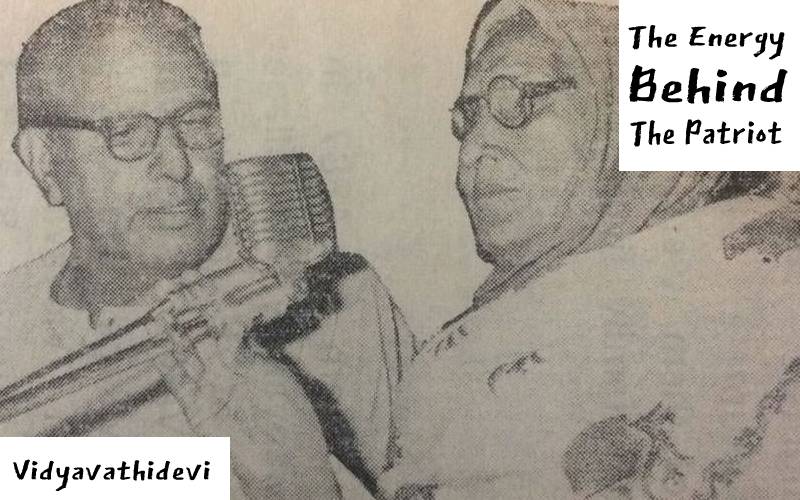
In spite of ill health and advancing age, Vidyavathidevi had attended meetings in Bangalore and other places. The Government of Punjab had conferred upon her the title ‘Punjab Matha’ on the 1st of January 1973. In 1965, a grand tribute was given to Bhagat Singh and her at Ujjain.
Songs composed on him were so emotional that the people would be moved to tears. Vidyavathidevi would console them and say, “Why do you weep? What has happened to you? Don't you know that today is the auspicious wedding day of my son? Look! its being celebrated in a grand manner. See the garlands swaying in the breeze and songs being sung. Today is the happiest day in my life. Rejoice.”
In the year 1970 on another occurrence, Vidyavathidevi had gone to Bengaluru and spoke to an emotionally charged crowd. She had done so even when her health condition was poor. The town hall of Bengaluru overflowed with people. Motivated with patriotic fervour, people on seeing her had begun to cry, “Bharat Mata Ki Jai.” The crowd had stood up and greeted her with folded hands. The grand old lady had indeed lived for her nation.
As long as the love for the nation is alive, the brave mother Vidyavathidevi and her patriotic son Bhagat Singh will remain enshrined in every Indian’s heart.
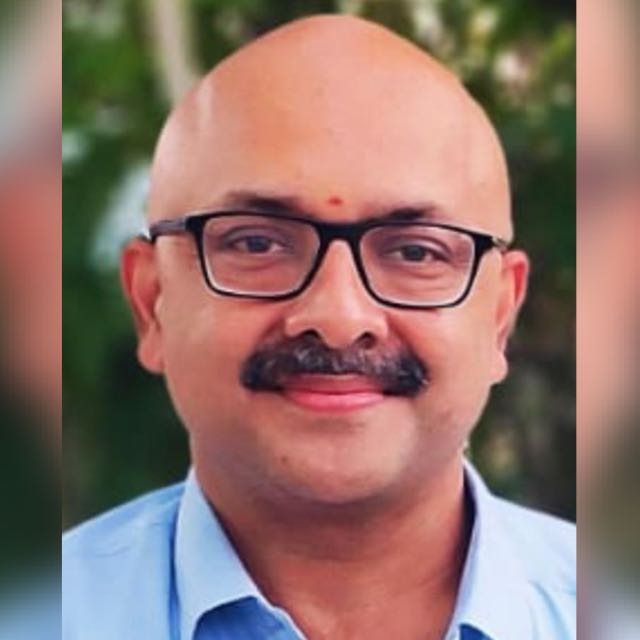 Mr. Rajesh Govindarajulu is one of the founding members of the Verandah Club Pvt. Ltd. He is a leading columnist, historian, jeweler, entrepreneur, and a heritage enthusiast who is earnestly working to revive the past in the light of the present. Experiential learning about the history of Coimbatore is his main course of interest and he is also a panel member of many colleges in the city.
Mr. Rajesh Govindarajulu is one of the founding members of the Verandah Club Pvt. Ltd. He is a leading columnist, historian, jeweler, entrepreneur, and a heritage enthusiast who is earnestly working to revive the past in the light of the present. Experiential learning about the history of Coimbatore is his main course of interest and he is also a panel member of many colleges in the city.
NEXT ARTICLE
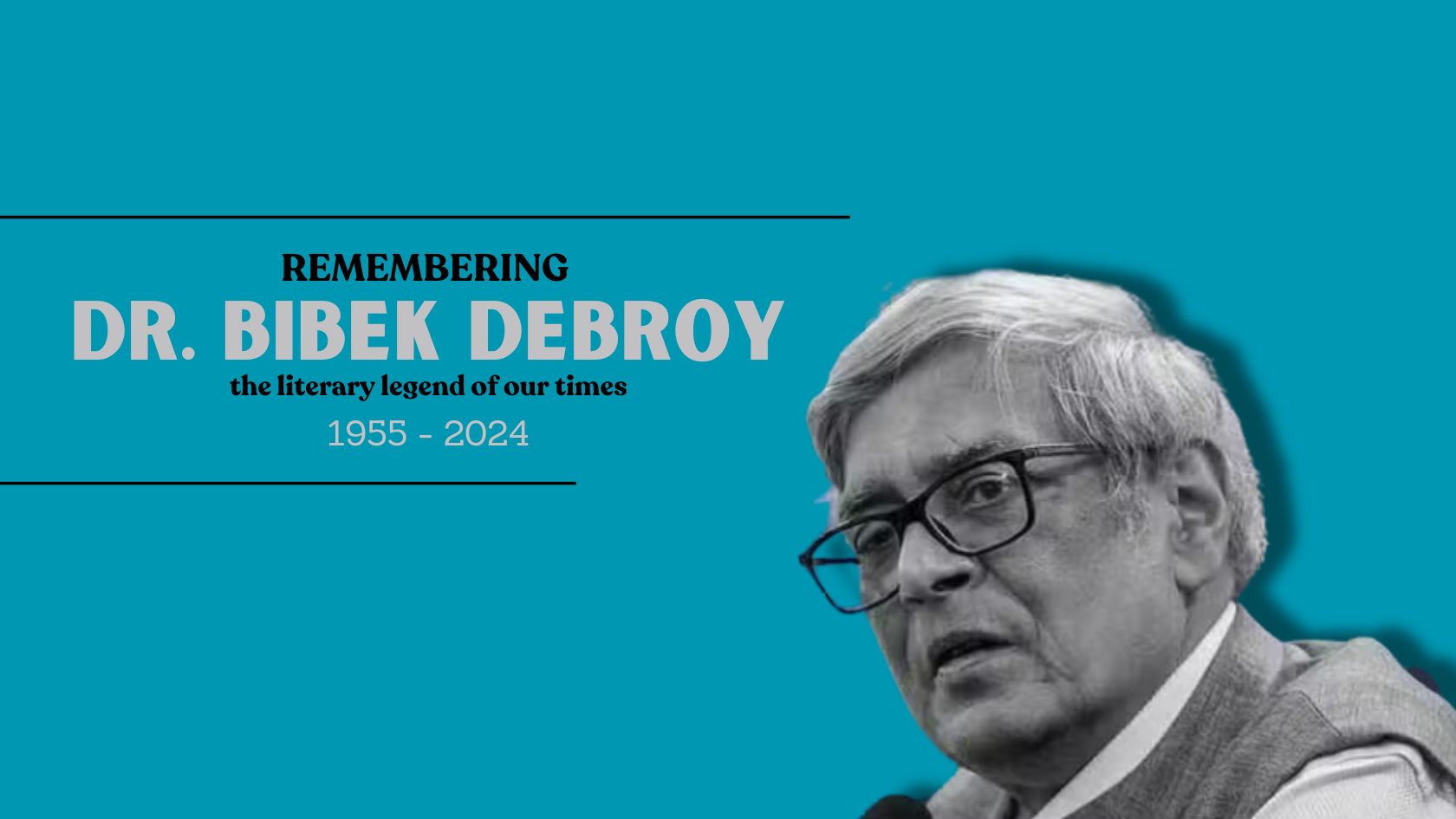
All authors who write about the Mahabharata have to read its unabridged version. The most popular unabridged translation used to be the one by Kisari...
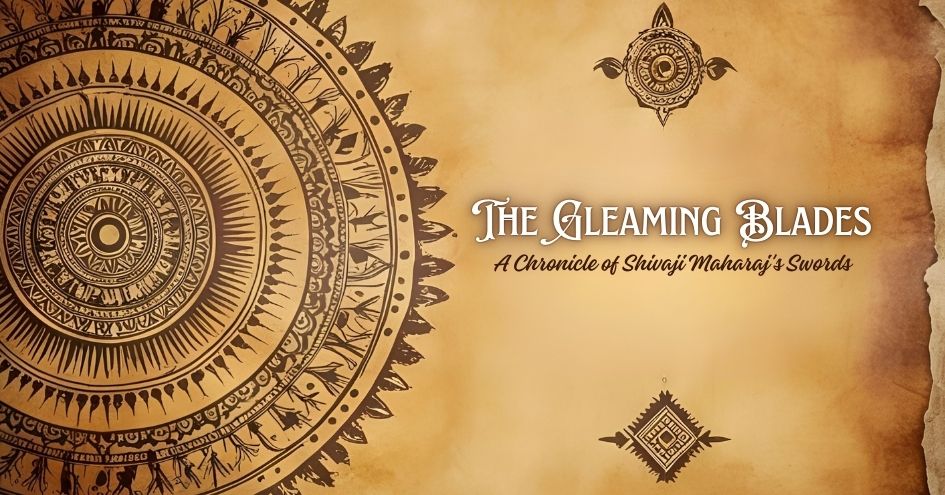
In the annals of Bharat Varsh, amidst the swirling mists of time and legacy, emerges the figure of Chhatrapati Shivaji Maharaj, a warrior whose name e...